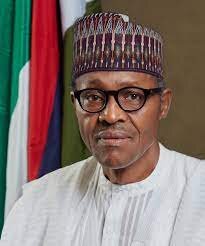By Sophie Soloway ’23
Global Editor
The Nigerian government announced on June 5 that the country’s citizens would no longer be able to access Twitter. This ban followed the social media platform’s decision to delete tweets published by Nigerian President Muhammadu Buhari.
Nigerian government blocks access to Twitter in the country after the social media platform’s decision to delete tweets published by Nigerian President Muhammadu Buhari. Photo courtesy of Wikimedia Commons.
This decision from the state government follows a year of historic protests in Nigeria. The #EndSARS movement in particular –– a widespread anti-police brutality campaign –– has attracted global attention since its resurgence in early October following the publicized murder of a Nigerian citizen, Daniel Chibuike, by the country’s Special Anti-Robbery Squad. In the months following his death, protests have largely been met with further police violence and suppression from the state.
Buhari’s tweets, published on June 1, specifically addressed these protestors in southeastern Nigeria and referenced the 1967 Nigerian-Biafran Civil War, leading many citizens and activists to view the tweets as a threat of violence against those voicing dissent. Although the West African regional bloc — the Economic Community of West African States — barred the government from prosecuting individuals or corporations in Nigeria for using Twitter since the ban was enacted, the state has not reversed the general ban.
Professor of politics Ali Aslam noted the Twitter ban is likely a response to the past year’s activism, commenting, “My views on social media generally are that platforms like Twitter can be incredible resources for activists. This explains why governments like Nigeria and Egypt before it, to name two, try to either ban them or shut down the internet during moments of unrest.”
The #EndSARS movement has indeed found a large portion of its following through Twitter. After the initial video detailing SARS violence was released, demands for justice circulated globally on the platform, while activists in the country and across the world communicated their demands and publicized their actions via trending tweets.
Weeks after the initial Twitter ban was announced, the Nigerian government engaged in talks regarding further regulations specifically impacting the country’s press. The President’s All Progressive Congress party has proposed an amendment creating a code of conduct for journalists in the country. The proposed bill would allow the government to fine and prosecute media producers for content deemed “fake news.” Many in Nigeria have voiced concerns that this decision, and those that might follow, will allow further repression of political dissent.
However, Aslam noted that social media corporations are powerful entities and may not be overthrown so quickly, stating, “On the other side, banning a platform points to how powerless governments are to regulate these corporations. [This] suggests the ineffectiveness of leaving corporations to regulate themselves given that this role has been subordinated to keeping users engaged on the platforms and generating revenue as a result.”
As courts debate the enforceability of Buhari’s Twitter ban, and as Twitter advocates for its own presence in the country, activists across Nigeria continue to demand an end to the police brutality and state repression.

